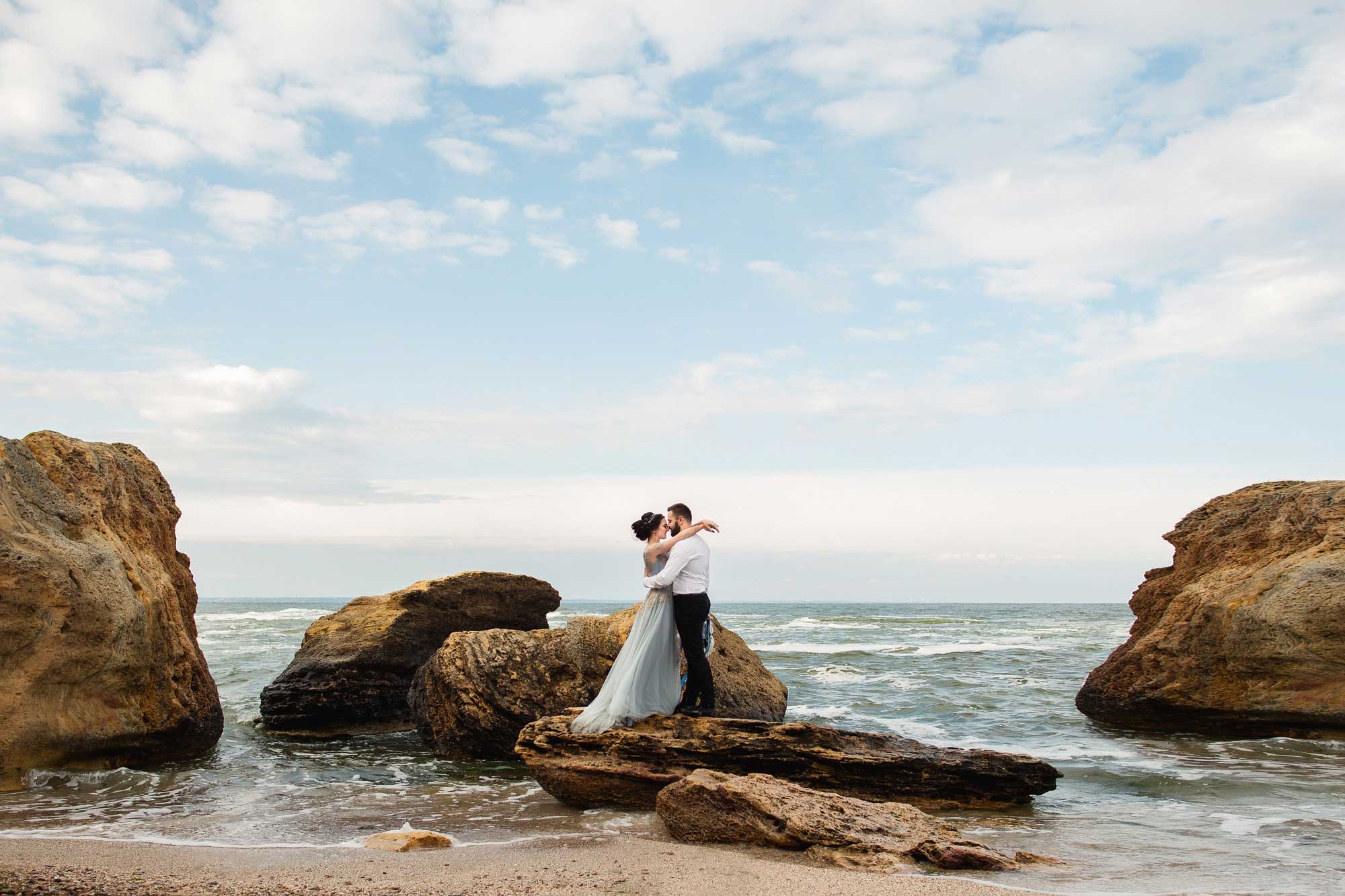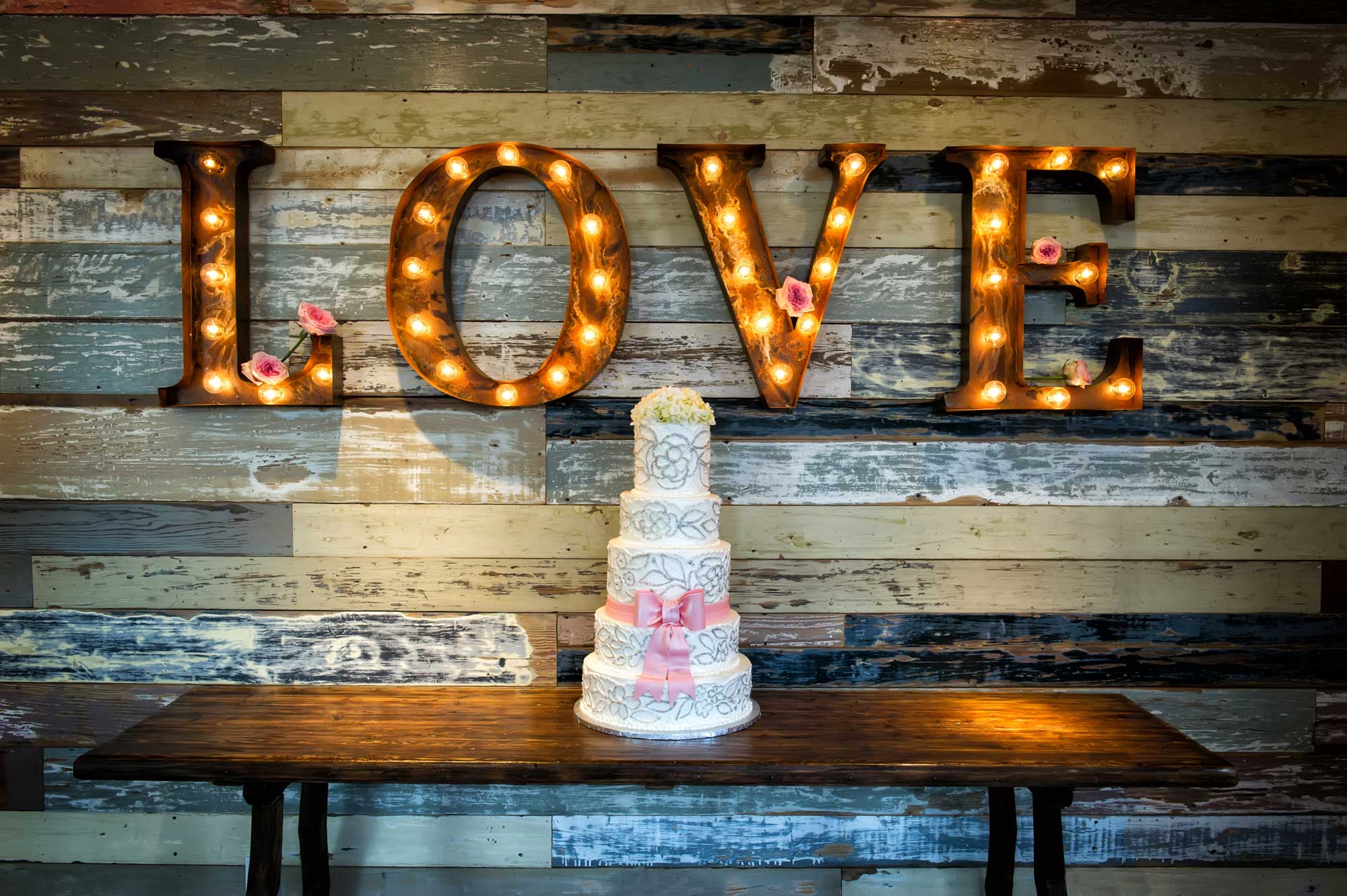12 Destination Wedding Etiquette Questions Answered
Experts offer tips on planning a stress-free destination wedding.
We may receive a commission on purchases made from links.
From gathering with your closest friends and family members to saying "I do," a wedding can be among the happiest moments in your life. But there are, of course, the formalities that precede the big day, and not all of them are fun or easy to handle. Consider all of those factors, and combine those difficulties with the added pressure of organizing a destination wedding.
Yes, following correct destination wedding etiquette can be tough — like when to send invitations for your wedding — but planning a destination adds its own unique set of logistics. To get you the help you need, we turned to three etiquette experts well-versed in minding manners to guide you through any sticky, potentially awkward situation.
Read on to hear from three experts who've written their own books about the big day and everything before, after and in between.
What is the couple expected to pay for?
Technically, the bride and groom are only required to pay for the ceremony and reception, including food, drinks, entertainment and décor. Guests are expected to pay for their own travel arrangements. Because destination weddings are often longer celebrations over three to seven days, couples often host additional events, such as a welcome party or farewell brunch, but these are not a requirement. – Karen Bussen, author of Simple Stunning Wedding Organizer
Is it OK to pay travel expenses for a guest who is undergoing financial hard times?
Helping out would surely be welcomed by the guest, but know that you may open yourself up to criticism by doing this, especially if you have guests who declined their destination wedding invitations due to budgetary reasons. Unless it's a wedding-party member, a very close friend or a family member, it's best to have a standard set of guidelines to follow when it comes to money and budgeting for the wedding.
Of course, if it's just one person (who can keep quiet), that's a different story. Ultimately, the bride and groom need to do what feels right for them. – Holly Lefevre, author of The Everything Wedding Etiquette Book
When should you send save-the-date announcements?
The distance and accessibility of the destination can affect the timing of when to send invitations for the wedding; traveling to a far-off locale takes more time to plan than a three-hour road trip to the mountains. To be safe either way, send out the save-the-dates as soon as you confirm the details. The more time, the better: nine to 12 months is ideal and provides guests ample time to schedule travel plans and time off from work.
Be sure to include information about the wedding destination — ideally via a link to your wedding website — so guests can begin to plan. – Holly Lefevre
When should formal invitations be sent, and what info should be included?
When it comes to your destination wedding invitation timeline, the average lead time for invitations is six to eight weeks before the wedding; however, destination-wedding invites should be sent anywhere from two to three months ahead of time. If you sent a save-the-date, an invitation is expected to follow.
With a formal invite, the emphasis should be on the invitation itself, so don't turn it into a travel brochure; instead, list your wedding URL in the invite, and update all travel information online, including places to stay, group-hotel rates, maps and airport information.
Another helpful detail to include is the ceremony location (beach, lawn, etc.) so guests wear the proper shoes. Never include registry information (that goes on your wedding website). – Anna Post, great-great-granddaughter of Emily Post and author of Do I have to Wear White?
Since destination weddings often involve multiple events, I suggest creating a card separate from the main invitation to invite guests to any satellite celebrations (e.g., a welcome clambake, a golf outing, a post-wedding brunch). This way, you can include boxes to check on your reply card, which will make it much easier for you to track who's coming to what.
It will also let your guests know that the festivities begin before the wedding day itself so they can plan accordingly. – Karen Bussen
What's the etiquette for letting friends know they're not invited?
When sending destination wedding invitations, you'll come across a list of people who won't be invited. No one should assume they are ever invited anywhere, but they do. In the case of a destination wedding, typically it's a smaller affair with close friends and family. If friends ask why they aren't invited, all that's necessary is a simple statement letting them know the wedding is small.
When it comes to destination wedding invitation wording, tact and honesty will pay off in the end, even if the conversation is uncomfortable. If the wedding is large, the couple should still be honest, even if there's a possibility of hurt feelings. – Holly Lefevre
Who should be invited to the engagement party?
Only guests who will be invited to the wedding should be invited to the engagement party. One exception is if the destination wedding is intimate, meaning only the couple and immediate families. Then, it's OK to have a larger celebration at home. Also, remind guests that gifts are not required at an engagement party. – Holly Lefevre
Should couples provide welcome gifts at the destination?
When guests arrive at the end of a long journey, it's very gracious to have a little gift waiting for them at the front desk or in their room. This could be a beach bag filled with sunscreen and bottled water, a rustic crate filled with local snacks or a simple scented candle accompanied by a welcome note.
Along with the gift, include a brief itinerary of wedding events for their convenience, in case they forgot to bring it. One tip: Give a gift that can be enjoyed during their stay (e.g., snacks, wine) or a suitcase-friendly item that will be easy to take home. – Karen Bussen
Is the couple responsible for hosting pre-wedding and post-wedding events like a rehearsal dinner or a farewell brunch? Who should be invited?
While these gatherings aren't necessary, they are surely appreciated. After all, guests have spent money and taken time off work to be with you on your big day It's good form to host a welcome or farewell party to show your gratitude.
Technically, there's no rule that says you have to invite every guest, but, since they're going out of their way to attend your event, and since guest lists for destination weddings tend to be smaller, excluding some guests doesn't really make sense. Also, be careful not to go overboard and plan too many activities. Book only one gathering beyond the rehearsal dinner, be it a beach-cabana day or a sailing excursion, so guests can relax and enjoy their vacation. – Anna Post
How does gift etiquette differ from at-home weddings?
Gifts tend to be smaller due to traveling concerns and money spent on flights and accommodations. To thank guests for going through so much trouble, a classy thing would be to tell guests their presence is their present. – Anna Post
Who wants to tote a blender to Jamaica? Or home from Jamaica? A polite line on the registry page of your wedding website should let guests know to send gifts directly to the couple's home or to the bride's residence or a family residence, if the couple doesn't live together yet. – Karen Bussen
Are guests who attend a post-wedding, at-home reception but not the destination ceremony itself required to bring gifts?
Typically, one invitation equals one wedding gift, whether or not the guest is able to attend the wedding away. An invitation to a belated reception back at home does not imply that people are expected to bring gifts. Some people will want to, but it's not required. Don't plan this kind of gathering with the expectation of additional gifts. – Anna Post
What's the best way to denote an adults-only event?
The same rules apply to destination weddings as local weddings: The invitation should be addressed only to those who are invited — meaning, if the children's names are left off, they are not invited. Of course, few people know this rule, but it's generally frowned upon to include verbiage that states "adult reception" or "no children" in your wording for destination-wedding invitations.
Handling the situation with proper etiquette is recommended, but you can always let your parents and the wedding party know it's an adult reception, in case they're asked. – Holly Lefevre
List exactly the people who are invited on the inner envelope, and don't mention who isn't invited on the invitation. Not including children is the host's choice, and guests have to respect it. If you have invitees with children who might not understand, call them on the day you mail invites, and say something like, "We're only able to invite you and Tom to the wedding. We know that means you need to get a sitter, so we wanted to give you as much time as possible."
If someone RSVPs with children, call to say, "We're sorry if there is confusion, but we can only invite you and Tom." The way you say something like this can make all the difference. There's a big distinction between saying this and saying, "We're not inviting your son." Keep the focus on what you can do rather than what you can't. As long as you're respectful while letting them know, it's their bad if they can't swallow it. – Anna Post
Are there any etiquette rules that apply to wedding websites, Facebook or Twitter?
Etiquette rules continue to evolve when it comes to social media. The ease and modern feel of social-media outlets and wedding websites have allowed couples to find ways to tweak etiquette to help convey necessary details, such as registry information, childcare issues, where to send gifts, etc.
A rule of thumb: Aim for grace and tact at all times, even when online. A good suggestion is to keep parts of your wedding off social media entirely, or create private groups. You don't want to play out any family drama or personal issues in such a public forum. Also, friends who aren't invited may take offense to a barrage of wedding information. Plus, for your own security, you don't want to be Facebooking or tweeting that you're out of town. – Holly Lefevre




